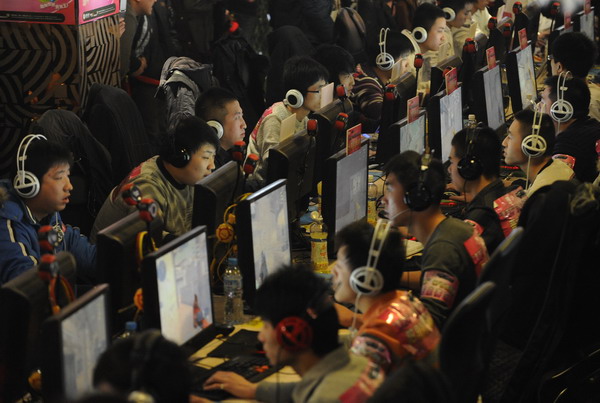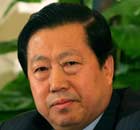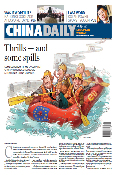Cyber opinions affect public policy
Updated: 2010-11-23 07:40
By Wang Hongyi (China Daily)
|
 Netizens play video games and surf the Internet at an Internet cafe in Taiyuan, capital of Shanxi province in this file photo. [Photo/China Daily] |
SHANGHAI - The growing expression of public opinion on the Internet in China is making the government's decision-making more democratic and objective, according to a recent report.
"The increase of public opinion on the Internet can help reduce information asymmetry in the government's decision-making process, promoting the objectivity and fairness of public policy assessment," said Xie Yungeng, deputy director of Shanghai Jiao Tong University's Institute of Arts and Humanities and leader of the research report.
"It also influences the legislation, pushing the revision of laws and regulations."
The report was compiled by the university's public opinion research laboratory and the Shanghai Development Strategy Institute.
With the rise of citizen consciousness, the awareness of self-expression has increased in recent years, the report said. More and more people are expressing their views and feelings on the Internet, particularly to safeguard their legal rights and supervise government officials.
Meanwhile, the rapid development of new media, such as blogs, micro blogs and BBS (bulletin board system), is providing a new channel for citizens to stand up for their rights.
For instance, Zhong Guangwei, a 37-year-old coal miner from Shaanxi province who suffers from pneumoconiosis, has sent more than 700 messages to his micro blog by mobile phone since September, recording his suffering and experiences while seeking his legal rights. His micro blog became a hot topic on the Internet.
"In a world of new media, the fast flow of information makes these individual cases gain wide public attention and quickly become public cases," Xie said.
"Also, public attitude is inclined to sympathize with vulnerable groups," he said, adding that public opinion would eventually influence public policy.
The report said that Internet-based public supervision, compared with traditional public supervision, mainly targets government officials and their relatives, especially those at or below county level, the report said.
"Due to a lack of ability and experience in handling breaking events and public affairs, officials at lower levels are more easily exposed through public supervision than superior officials," Xie said.
"Officials have to be very cautious of their behavior and speeches, as a number of clumsy or rude remarks by officials have been exposed on the Internet, sparking public outcry," Xie said.
Despite the huge influence of Internet-based public opinion, the research report also pointed out it cannot be taken to represent all of society since the demographic of netizens is not an accurate cross-section of society.
Paper's Digest

Chinese jet takes on Big 2
First large commercial plane set to ride on demand for aircraft as economy grows.
Super-CPU only for domestic eyes
Specials

Chinese jet takes on Big 2
First large commercial plane set to ride on demand for aircraft as economy grows.

Gaining ground
Doing business in china for westerners has come a long way, Peter batey says.

Safeguarding environment a priority
China continues to face mounting pressure to curb environmental degradation, despite progress in reducing pollution over the last five years, the environmental protection minister warned.
